Il futuro di mercato di Nokia secondo il proprio CEO

Nokia si prepara a rendere pubblica la propria strategia per il mercato smartphone; un memo interno del proprio CEO, apparso online, anticipa quello che sarà un cambio per molti versi rivoluzionario
di Paolo Corsini pubblicata il 10 Febbraio 2011, alle 11:00 nel canale TLC e MobileNokia
Nella mattina di domani, Venerdì 11 Febbraio, Nokia terrà a Londra il proprio meeting annuale con gli investitori e in questa cornice ci si attende dal CEO, Stephen Elop, una chiara presa di posizione dell'azienda circa la propria strategia per il mercato della telefonia mobile. Come noto Nokia continua a restare il principale produttore mondiale di telefoni cellulari ma nel corso degli anni ha visto la propria quota di mercato progressivamente diminuire, soprattutto nel segmento dei prodotti a costo più elevato e margini maggiori.
Ci riferiamo alle soluzioni smartphone, per le quali la strategia di Nokia sino ad ora è stata quella di proporre il sistema operativo Symbian e sviluppare internamente, ma senza ancora prodotti pronti per la commercializzazione, nuove proposte con sistema operativo MeeGo. Nel frattempo i consumatori si sono progressivamente allontanati dall'azienda finlandese per quanto riguarda le soluzioni smartphone, attratti da Apple con le proprie serie di iPhone e più recentemente dal proliferare di soluzioni Android con differenti livelli di prezzo.
E' stato pubblicato online un memo interno di Stephen Elop, con il quale viene delineata agli occhi del nuovo CEO dell'azienda la situazione nella quale Nokia opera e la posizione di notevole difficoltà. Il paragone scelto è quello di un uomo che si trova su una piattaforma petrolifera sulla quale è scoppiato un vasto incendio. La scelta è buttarsi tra le fiamme (per Nokia, fuori dall'immagine, continuare con la propria attuale strategia legata agli smartphone) di fatto condannandosi a morte certa oppure buttarsi nelle gelide acque del mare (scartare Symbian e MeeGo passando ad altro sistema operativo) cercando una via di salvezza difficile ma non impossibile.
Il memo, molto diretto, non manca di evidenziare quali siano stati gli errori del passato compiuti da Nokia che hanno portato all'attuale scenario di mercato. In particolare il confronto con Apple e Android è molto duro: per le soluzioni iPhone dopo circa 4 anni dalla commercializzazione del primo modello Nokia non ha ancora a disposizione una soluzione che possa competere con il livello di esperienza ottenibile con iOS. Per Android il riconoscimento è legato alla straordinaria crescita di mercato avvenuta in soli 2 anni dal debutto, pur con il proliferare di versioni e la segmentazione del mercato.
Per Elop, e in questo non si può che essere d'accordo, la strategia di Nokia deve necessariamente passare attraverso la creazione di un ecosistema, seguendo in questo le strategie portate avanti da Apple con iOS e da Google con Android, fornendo a sviluppatori da un lato e a clienti dall'altro tutti quegli strumenti che rendano uno smartphone sempre più un dispositivo di elaborazione e condivisione di dati.
E' evidente come Elop prefiguri per Nokia un futuro, in termini di strategia per i propri prodotti mobile, ben differente rispetto a quella portata avanti sino ad oggi. Ci si può domandare non tanto se Symbian verrà abbandonato quanto quale sistema operativo lo rimpiazzerà, scegliendo tra Windows 7 Mobile e Android in attesa che MeeGo sia pronto per l'utilizzo commerciale. E' evidente come la risposta a questa e a molte altre domande arriverà nella mattinata di domani, quando sarà la stessa Nokia a delineare con precisione la propria strategia per il mercato degli smartphone. Di seguito è riportato per intero il memo.
Hello there,
There is a pertinent story about a man who was working on an oil platform in the North Sea. He woke up one night from a loud explosion, which suddenly set his entire oil platform on fire. In mere moments, he was surrounded by flames. Through the smoke and heat, he barely made his way out of the chaos to the platform's edge. When he looked down over the edge, all he could see were the dark, cold, foreboding Atlantic waters.
As the fire approached him, the man had mere seconds to react. He could stand on the platform, and inevitably be consumed by the burning flames. Or, he could plunge 30 meters in to the freezing waters. The man was standing upon a "burning platform," and he needed to make a choice.
He decided to jump. It was unexpected. In ordinary circumstances, the man would never consider plunging into icy waters. But these were not ordinary times - his platform was on fire. The man survived the fall and the waters. After he was rescued, he noted that a "burning platform" caused a radical change in his behaviour.
We too, are standing on a "burning platform," and we must decide how we are going to change our behaviour.
Over the past few months, I've shared with you what I've heard from our shareholders, operators, developers, suppliers and from you. Today, I'm going to share what I've learned and what I have come to believe.
I have learned that we are standing on a burning platform.
And, we have more than one explosion - we have multiple points of scorching heat that are fuelling a blazing fire around us.
For example, there is intense heat coming from our competitors, more rapidly than we ever expected. Apple disrupted the market by redefining the smartphone and attracting developers to a closed, but very powerful ecosystem.
In 2008, Apple's market share in the $300+ price range was 25 percent; by 2010 it escalated to 61 percent. They are enjoying a tremendous growth trajectory with a 78 percent earnings growth year over year in Q4 2010. Apple demonstrated that if designed well, consumers would buy a high-priced phone with a great experience and developers would build applications. They changed the game, and today, Apple owns the high-end range.
And then, there is Android. In about two years, Android created a platform that attracts application developers, service providers and hardware manufacturers. Android came in at the high-end, they are now winning the mid-range, and quickly they are going downstream to phones under €100. Google has become a gravitational force, drawing much of the industry's innovation to its core.
Let's not forget about the low-end price range. In 2008, MediaTek supplied complete reference designs for phone chipsets, which enabled manufacturers in the Shenzhen region of China to produce phones at an unbelievable pace. By some accounts, this ecosystem now produces more than one third of the phones sold globally - taking share from us in emerging markets.
While competitors poured flames on our market share, what happened at Nokia? We fell behind, we missed big trends, and we lost time. At that time, we thought we were making the right decisions; but, with the benefit of hindsight, we now find ourselves years behind.
The first iPhone shipped in 2007, and we still don't have a product that is close to their experience. Android came on the scene just over 2 years ago, and this week they took our leadership position in smartphone volumes. Unbelievable.
We have some brilliant sources of innovation inside Nokia, but we are not bringing it to market fast enough. We thought MeeGo would be a platform for winning high-end smartphones. However, at this rate, by the end of 2011, we might have only one MeeGo product in the market.
At the midrange, we have Symbian. It has proven to be non-competitive in leading markets like North America. Additionally, Symbian is proving to be an increasingly difficult environment in which to develop to meet the continuously expanding consumer requirements, leading to slowness in product development and also creating a disadvantage when we seek to take advantage of new hardware platforms. As a result, if we continue like before, we will get further and further behind, while our competitors advance further and further ahead.
At the lower-end price range, Chinese OEMs are cranking out a device much faster than, as one Nokia employee said only partially in jest, "the time that it takes us to polish a PowerPoint presentation." They are fast, they are cheap, and they are challenging us.
And the truly perplexing aspect is that we're not even fighting with the right weapons. We are still too often trying to approach each price range on a device-to-device basis.
The battle of devices has now become a war of ecosystems, where ecosystems include not only the hardware and software of the device, but developers, applications, ecommerce, advertising, search, social applications, location-based services, unified communications and many other things. Our competitors aren't taking our market share with devices; they are taking our market share with an entire ecosystem. This means we're going to have to decide how we either build, catalyse or join an ecosystem.
This is one of the decisions we need to make. In the meantime, we've lost market share, we've lost mind share and we've lost time.
On Tuesday, Standard & Poor's informed that they will put our A long term and A-1 short term ratings on negative credit watch. This is a similar rating action to the one that Moody's took last week. Basically it means that during the next few weeks they will make an analysis of Nokia, and decide on a possible credit rating downgrade. Why are these credit agencies contemplating these changes? Because they are concerned about our competitiveness.
Consumer preference for Nokia declined worldwide. In the UK, our brand preference has slipped to 20 percent, which is 8 percent lower than last year. That means only 1 out of 5 people in the UK prefer Nokia to other brands. It's also down in the other markets, which are traditionally our strongholds: Russia, Germany, Indonesia, UAE, and on and on and on.
How did we get to this point? Why did we fall behind when the world around us evolved?
This is what I have been trying to understand. I believe at least some of it has been due to our attitude inside Nokia. We poured gasoline on our own burning platform. I believe we have lacked accountability and leadership to align and direct the company through these disruptive times. We had a series of misses. We haven't been delivering innovation fast enough. We're not collaborating internally.
Nokia, our platform is burning.
We are working on a path forward -- a path to rebuild our market leadership. When we share the new strategy on February 11, it will be a huge effort to transform our company. But, I believe that together, we can face the challenges ahead of us. Together, we can choose to define our future.
The burning platform, upon which the man found himself, caused the man to shift his behaviour, and take a bold and brave step into an uncertain future. He was able to tell his story. Now, we have a great opportunity to do the same.
Stephen.







 Recensione Zenfone 11 Ultra: il flagship ASUS ritorna a essere un 'padellone'
Recensione Zenfone 11 Ultra: il flagship ASUS ritorna a essere un 'padellone' Appian: non solo low code. La missione è l’ottimizzazione dei processi con l'IA
Appian: non solo low code. La missione è l’ottimizzazione dei processi con l'IA Lenovo ThinkVision 3D 27, la steroscopia senza occhialini
Lenovo ThinkVision 3D 27, la steroscopia senza occhialini  eFootball taglia il traguardo dei 750 milioni di download: al via una campagna in-game
eFootball taglia il traguardo dei 750 milioni di download: al via una campagna in-game MS-DOS 4.0 diventa open source: Microsoft rende disponibile il codice sorgente
MS-DOS 4.0 diventa open source: Microsoft rende disponibile il codice sorgente Micron riceverà 6,1 miliardi di dollari di sussidi dal CHIPS Act americano
Micron riceverà 6,1 miliardi di dollari di sussidi dal CHIPS Act americano STALKER 2 Heart of Chornobyl: nuovo trailer e screenshot
STALKER 2 Heart of Chornobyl: nuovo trailer e screenshot Google: ancora un rinvio per lo stop ai cookie. Per antitrust e privacy non avverrà prima del 2025
Google: ancora un rinvio per lo stop ai cookie. Per antitrust e privacy non avverrà prima del 2025 Lotus Evija X è la seconda auto elettrica più veloce al Nürburgring
Lotus Evija X è la seconda auto elettrica più veloce al Nürburgring NIO e Lotus annunciano una grossa novità: svilupperanno insieme ricarica e scambio batteria
NIO e Lotus annunciano una grossa novità: svilupperanno insieme ricarica e scambio batteria Esclusive PlayStation su Xbox? Sì secondo un insider: Helldivers 2 sarà la prima
Esclusive PlayStation su Xbox? Sì secondo un insider: Helldivers 2 sarà la prima CATL: una nuova batteria per auto elettriche capace di offrire 600 km di autonomia con 10 minuti di ricarica
CATL: una nuova batteria per auto elettriche capace di offrire 600 km di autonomia con 10 minuti di ricarica TikTok al bando negli USA? Biden firma, ByteDance non vuole vendere. La parola ai tribunali
TikTok al bando negli USA? Biden firma, ByteDance non vuole vendere. La parola ai tribunali Taglio di prezzo di 150 euro per SAMSUNG Galaxy S24, S24+ e S24 Ultra: l'S24 si può adesso acquistare a 649€
Taglio di prezzo di 150 euro per SAMSUNG Galaxy S24, S24+ e S24 Ultra: l'S24 si può adesso acquistare a 649€ Utenti Amazon Prime: torna a 148€ il mini PC con CPU Intel 16GB/512GB! Per tutti quello da 379€ con AMD Ryzen 7 5700U e 32GB RAM!
Utenti Amazon Prime: torna a 148€ il mini PC con CPU Intel 16GB/512GB! Per tutti quello da 379€ con AMD Ryzen 7 5700U e 32GB RAM! Microsoft sfiora i 62 miliardi di dollari, ottimo trimestre grazie a cloud e Windows
Microsoft sfiora i 62 miliardi di dollari, ottimo trimestre grazie a cloud e Windows Coca-Cola al cloud con un pizzico di IA: stretto un accordo con Microsoft per 1,1 miliardi di dollari
Coca-Cola al cloud con un pizzico di IA: stretto un accordo con Microsoft per 1,1 miliardi di dollari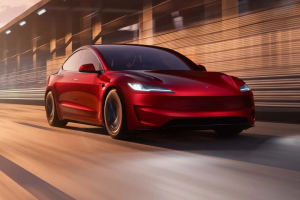
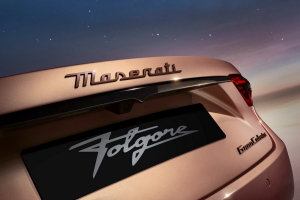



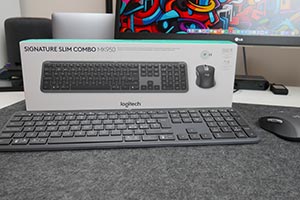


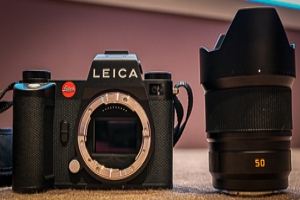




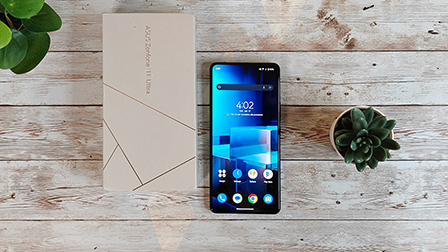




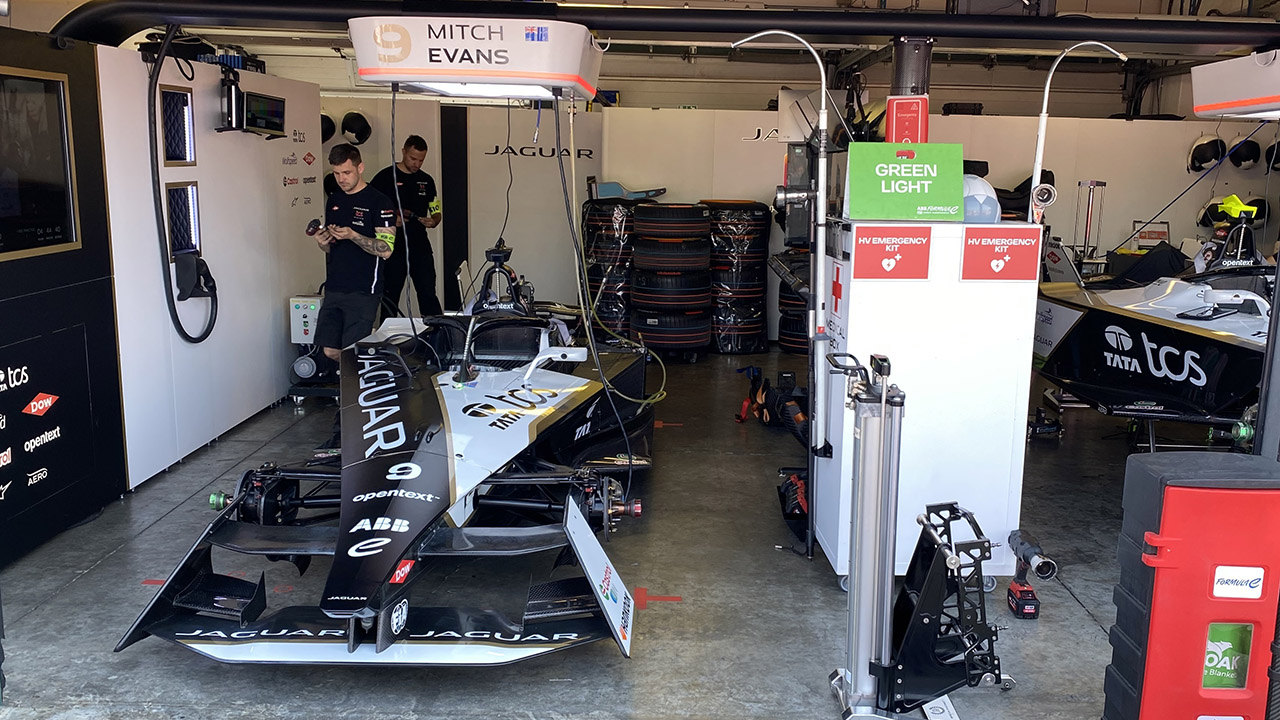
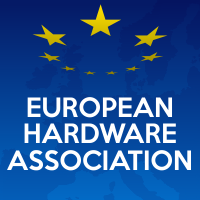
58 Commenti
Gli autori dei commenti, e non la redazione, sono responsabili dei contenuti da loro inseriti - infoCos'è un CEO o un fanboy?
Beh, forse è solo... realista.
D'altra parte ha parlato di "esperienza" (d'uso), non ha fatto una prosopopea sulle qualità inenarrabili ed inarrivabili di iPhone...
Si è soffermato su quello che, al di là di tutto, è indubbiamente il punto forte del terminale Apple e di iOS.
Non gli fischiano le orecchie da un paio di anni: "Nokia, molla symbian...", "Nokia, lascia perdere symbian...", "Nokia, abbandona symbian...", "Nokia, non insistere con symbian..."???
Boh!
Secondo me invece che investire tanto su questi progetti gli converrebbe collaborare alla Open Handset Alliance e montare Android sui loro terminali.
interpretazioni fantasiose
WP7? perche Elop prima era in microsoft? non vi seguo.Nel caso non lo abbiate capito il motivo alla BASE del successo di apple è
l'ecosistema e cioè il fatto di costruire interamente il prodotto, dall'hardware al software, tutto "in casa". Non è la prima volta che leggo interpretazioni fantasiose delle notizie riguardanti nokia su hwupgrade ma questa volta è palese anche perche avete riportato per intero il famoso "memo" e, chi si è preso la briga di leggerlo, magari ha tratto delle conclusioni diverse dalle vostre. Comunque avremo la risposta a breve visto che Elop illustrera la nuova strategia domani.
Nel caso non lo abbiate capito il motivo alla BASE del successo di apple è
l'ecosistema e cioè il fatto di costruire interamente il prodotto, dall'hardware al software, tutto "in casa". Non è la prima volta che leggo interpretazioni fantasiose delle notizie riguardanti nokia su hwupgrade ma questa volta è palese anche perche avete riportato per intero il famoso "memo" e, chi si è preso la briga di leggerlo, magari ha tratto delle conclusioni diverse dalle vostre. Comunque avremo la risposta a breve visto che Elop illustrera la nuova strategia domani.
ma infatti, anche perchè enganget è stato sempre un sito un po' fanboy apple (basti vedere che è probabilmente l'unico sito che nel confronto fotografico tra iphone4 e n8 dice che vince il primo
comunque era uscito un articolo non ricordo dove che diceva che una delle strategie del nuovo ceo era quella di provocare delle fibrillazioni al titolo nokia per permettere guadagni anche nel settore finanziario.
Secondo me invece che investire tanto su questi progetti gli converrebbe collaborare alla Open Handset Alliance e montare Android sui loro terminali.
ma siete fissati con android eh, volete proprio veder crollare la concorrenza nel segmento mid-high end?
http://nokia.hdblog.it/2011/02/10/l...io-ogni-6-mesi/
e per symbian c'è ancora il programma dei 5 aggiornamenti nel 2011.
Devi effettuare il login per poter commentare
Se non sei ancora registrato, puoi farlo attraverso questo form.
Se sei già registrato e loggato nel sito, puoi inserire il tuo commento.
Si tenga presente quanto letto nel regolamento, nel rispetto del "quieto vivere".